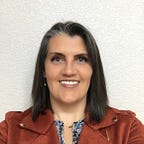Be Careful What You Know
Don’t fall into the knowing trap. It can keep you in an echo chamber of your own making.
Our days are filled connecting with our teams, our families and our communities. We keep up on the news, events within our industries, and within the dynamics of our families. We feel we are reasonably well informed and know what the issues that are most important. We know what our teams need and what trends we need to watch and be informed on in our industries. But what do we really know?
There is a great big world outside of the small piece of it that we live in. A world full of information, perspectives, and insights that we can’t even begin to imagine. But you knew that right?
We should all be careful of using “I know”. While we absolutely have knowledge that we’ve learned and experiences we’ve gained, we often take those knowledge and experiences as reality when this is far from the truth. For years, I have mentored college students on their resumes — what to include, what to avoid, and how best to position themselves. It took only two days of putting my resume out in to the marketplace to realize that my recommendations, while helpful, were just the tip of a very large, very complex iceberg.
We assume knowledge when we only have a very general understanding of how something works. Nothing shows how little you know than having your internet go out and then trying to figure out how to resolve the issue, make sense of the different options, and select the correct settings.
We also tend to think we know when we hear things that make sense, seem logical, or resonate with information we already know. Beware! These are all situations that can keep you from learning. When someone does a good job of explaining something that only means that they are very skilled at articulating their points, not that we understand them.
Don’t believe me? Try explaining those same concepts to someone else or ask your self why each of their points is true. When we think we know is when we should be most focused on asking questions and thinking more deeply about that information. As humans, we are also very prone to confirmation bias which leads us to disregard or discount information that doesn’t support our viewpoint.
In their book The Knowledge Illusion: Why We Never Think Alone, Steven Sloman and Philip Fernbach highlight why we are so prone to think we know more than we actually do. Our brains focus on gleaning the most important facts and features about a situation, filtering out what our brains deem to be unimportant even when what our brains deem unimportant IS important. The rise of the internet and search engines have also contributed even more to our illusion of knowledge as we tend to assume that knowing how to find the information equates to knowing.
This can lead to the Dunning-Kruger effect or being unaware of the knowledge gaps that exist for you. When you are unaware, you are consciously incompetent and will tend to rate yourself higher than
To overcome the knowledge illusion use these strategies:
- Ask Why — This simple, yet powerful, strategy prompts you to question what you know and why you know it. This process will uncover the blind spots that you have.
- Actively Listen — Rather than jumping to an “I know” mentality ask open and probing questions to understand the perspective of others. This will uncover ideas and insights that you might not have considered.
- Embrace Collaboration — We all have our areas of expertise and bringing together a cross-functional, diverse set of individuals provides insights, perspectives, and ways of approaching problems that they would otherwise not be exposed to.
Here’s to breaking the knowing illusion and becoming smarter as individuals and collectively as a society.
